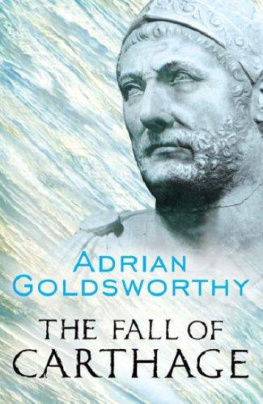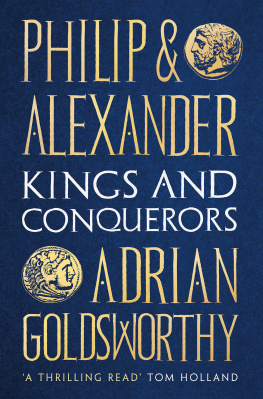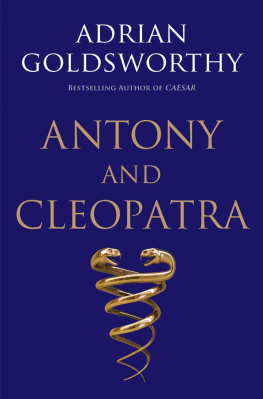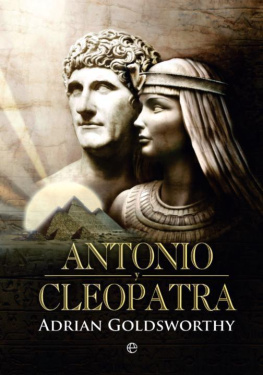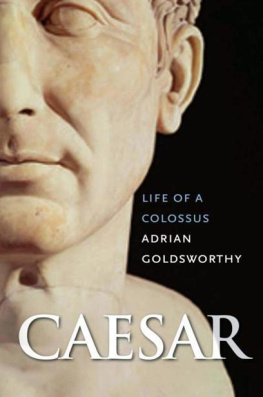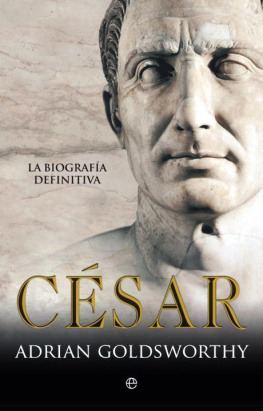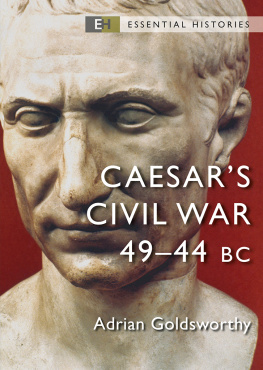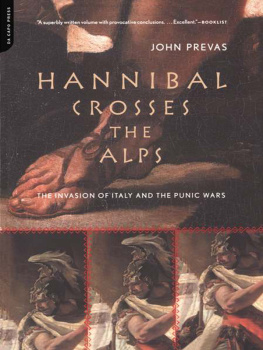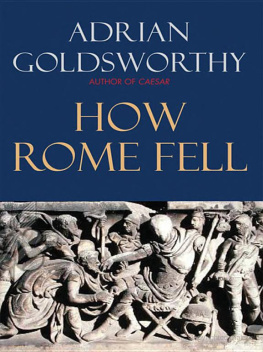The Fall of Carthage Adrian Goldsworthy
| Published: | 2007 |
| Tags: | Military, Non Fiction
Militaryttt Non Fictionttt |
SUMMARY:
Adrian Goldsworthy is one of the best young historians writing today. John KeeganThe Fall of Carthage was the greatest conflict of the ancient world, and thanks to one of the finest historians of our time, this sweeping saga comes to life anew for modern audiences. The cast of endlessly fascinating characters includes the generals Hannibal and Scipio, as well as treacherous chieftains, beautiful princesses, scheming politicians, and tough professional warriors.

The Fall of Carthage
Adrian Goldsworthy
| Published: | 2007 |
| Tags: | Military, Non Fiction
Militaryttt Non Fictionttt |
SUMMARY:
Adrian Goldsworthy is one of the best young historians writing today. John KeeganThe Fall of Carthage was the greatest conflict of the ancient world, and thanks to one of the finest historians of our time, this sweeping saga comes to life anew for modern audiences. The cast of endlessly fascinating characters includes the generals Hannibal and Scipio, as well as treacherous chieftains, beautiful princesses, scheming politicians, and tough professional warriors.
THE FALL OF CARTHAGE
Dr Adrian Goldsworthy studied at St John's College, Oxford, and has taught at a number of universities. His published works include The Roman Army at War, Roman Warfare, Cannae, In the Name of Rome and Caesar: The Life of a Colossus, which has been selected by the Society for Military History for the Distinguished Book Award for biography and war memoirs. He is now a full-time author.
By Adrian Goldsworthy
The Fall of the West
Caesar: The Life of a Colossus
In the Name of Rome
Cannae
The Fall of Carthage
Roman Warfare
The Roman Army at War
THE FALL OF CARTHAGE
THE PUNIC WARS
2 6 5-1 4 6 BC

ADRIAN GOLDSWORTHY
A PHOENIX PAPERBACK
This paperback edition published in 2006 by Phoenix, an imprint of Orion Books Ltd, Orion House, 5 Upper St Martin's Lane, London WC2H 9EA
An Hachette UK company
First published in Great Britain by Cassell in 2000 as The Punic Wars This paperback edition originally published in 2003 in Cassell Military Paperback
Copyright Adrian Goldsworthy 2000
The right of Adrian Goldsworthy to be identified as the author of this work has been asserted by him in accordance with the Copyright, Designs & Patents Act 1988.
All rights reserved. No part of this publication may be reproduced, stored in a retrieval system, or transmitted, in any form or by any means, electronic, mechanical, photocopying, recording or otherwise, without the prior written permission of the copyright owner.
A CIP catalogue record for this book is available from the British Library
ISBN 978-0-3043-6642-2
Designed by Gwyn Lewis
Printed and bound in Great Britain by CPI Cox & Wyman, Reading, RG1 8EX
The Orion Publishing group's policy is to use papers that are natural, renewable and recyclable products and made from wood grown in sustainable forests. The logging and manufacturing processes are expected to conform to the environmental regulations of the country of origin.
Contents
List of maps 7 Preface Introduction
1 The Opposing Sides
PART ONE
THE FIRST PUNIC WAR 264-241 BC
The Outbreak of War
The Land War
The War at Sea
The End
PART TWO
THE SECOND PUNIC WAR 218-201
Causes of the Second Punic War
Invasion
Cannae and the Crisis for Rome
The War in Italy, 216-203 BC
Spain, Macedonia and Sicily
The Rise of Scipio, 210-205 BC
Africa
Rome, the Beginnings of Empire
PART THREE
THE THIRD PUNIC WAR 149-146 BC
'Delenda Carthago'
The Third Punic War
The Legacy
Notes to the Text
Chronology
APPENDIX I The Republican Political System
APPENDIX 2 The Consular Army
Index
List of Maps
The Mediterranean World in the Third Century BC 14-15
Carthaginian North Africa
The Italian Peninsula Sicily
The Battle of Ecnomus, 256 BC
The Battle of Drepana, 249 BC
Spain
The Battle of Trebia, 218 B c
The Battle of Lake Trasimene, 217 BC
The Battle of Cannae, 216 BC
Macedonia, Illyria and Greece
The Siege of Syracuse, 214-212 BC
The Storming of New Carthage, 209 BC
The Battle of Ilipa, 206 BC
The Battle of Zama, 202 BC
The Siege of Carthage, 149-146 B c
Preface
OH YES, HANNIBAL and his elephants' was the almost universal reaction whenever I told someone that I was writing a book about the Punic Wars. The Alps were mentioned fairly often, and every now and again the Romans put in an appearance, but that seemed to be about the limit of most people's knowledge. Only a few had much idea of when and by whom this series of conflicts had been fought, and who eventually won. A small minority, most of whom had an interest in ancient or military history, knew much more, and their knowledge was often remarkably detailed and embraced the minor tactical details of particular battles or the peculiarities of Punic religion. Perhaps it should be more surprising that even these few remembered anything at all about wars fought twenty-two centuries ago, but it is only in the last few generations that the Punic Wars have disappeared from the wider consciousness in Europe and North America. Until well into the twentieth century Greek and Latin languages and literature lay at the heart of Western education, and the major events and personalities of the Graeco-Roman World, especially those described by one of the great ancient authors, were familiar and frequently alluded to in art and literature.
All this has now changed, as Latin and Greek are now rarely taught in schools, and the perception of the classical roots of modern culture steadily diminishes. The distant - and often bitter - memory of childhood acquaintance with Caesar's Gallic Wars and Passives, Subjunctives and Ablative Absolutes is now increasingly uncommon. I am probably one of a relatively small minority in my generation who attended a school where Latin was compulsory from the age of nine. I can still remember toiling my way through a passage in my first Latin textbook (and so using only a few simple tenses) which recounted the story of Regulus keeping his oath even though it meant death by horrible torture. Such things were rare in the late
1970s and have become rarer still, but moral tales like that of Regulus, or Cincinnatus and Horatius Codes were long seen as highly appropriate for children. Very few even of the students who study Ancient History, Classics or Philosophy at university now have any prior knowledge of Greek or Latin. Amongst the population as a whole references to Hollywood epics such as Spartacus or Ben-Hur are far more likely to prompt a response than mention of Polybius, Livy or Tacitus. A reversal of this trend seems extremely unlikely, but it is clear that interest in the long-distant past remains, evidenced by the regular appearance of television documentaries featuring history and archaeology. There are several reasons for this continued attention. The classical world witnessed many intensely dramatic events and was peopled with remarkable personalities, charismatic individuals whose careers were often both heroic and tragic. It is, in short, the source of many good stories which still bear retelling. Its influence, along with that of Christianity, also did more than anything else to shape the culture of today.

